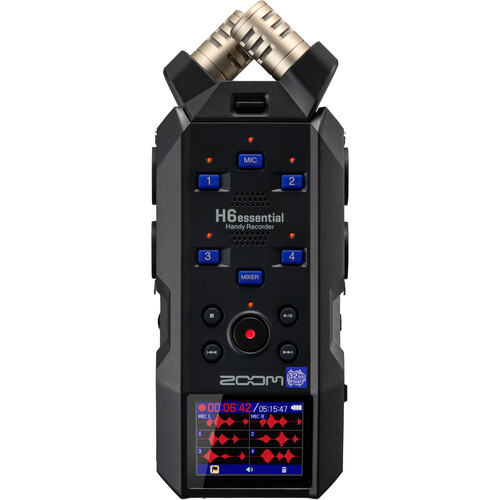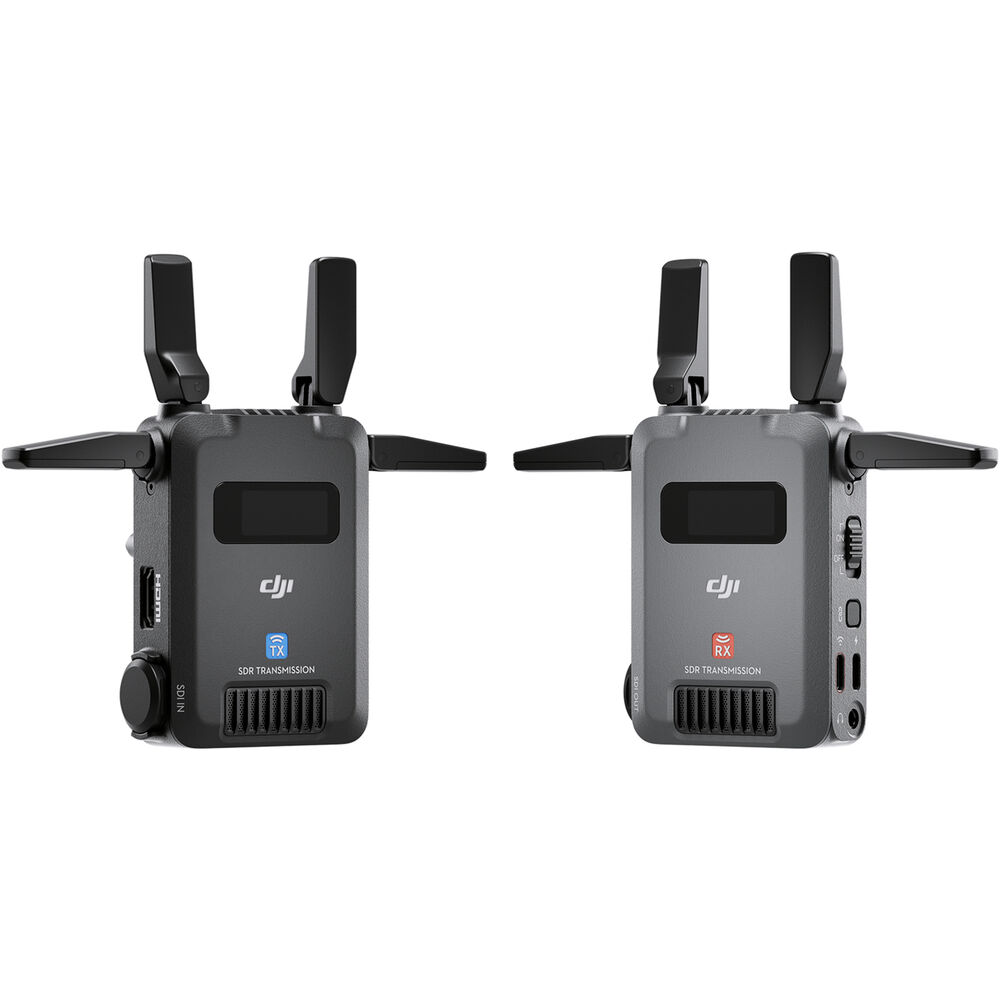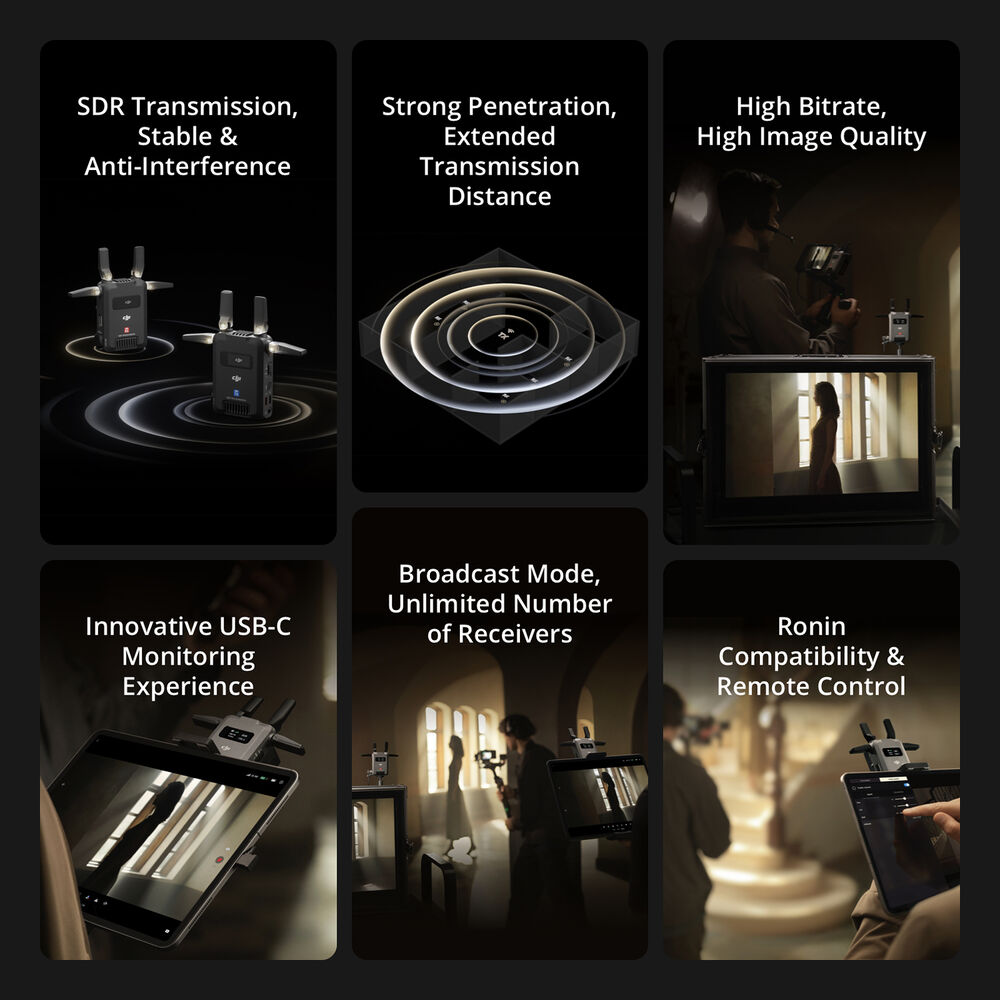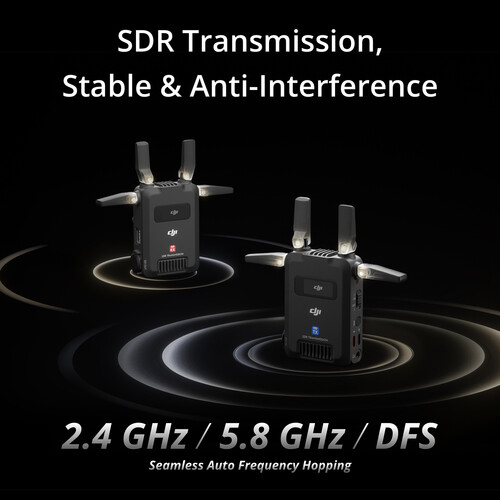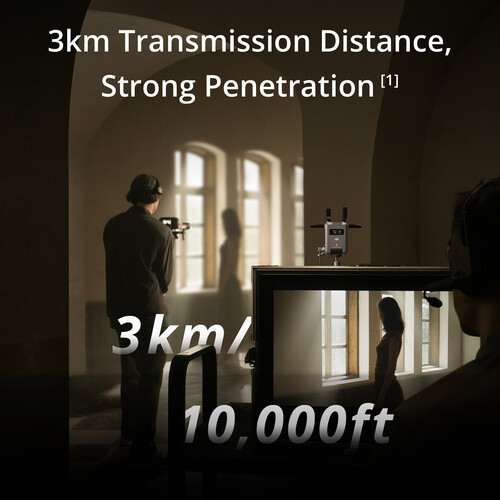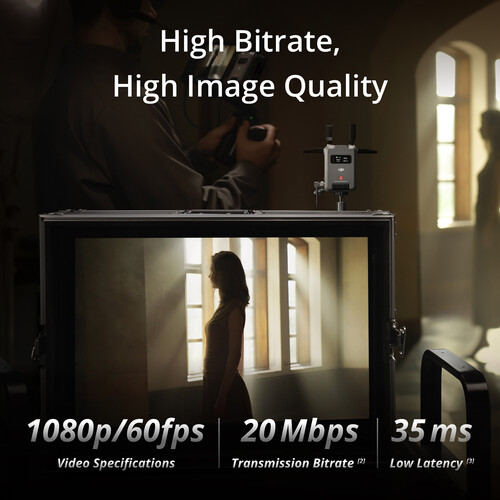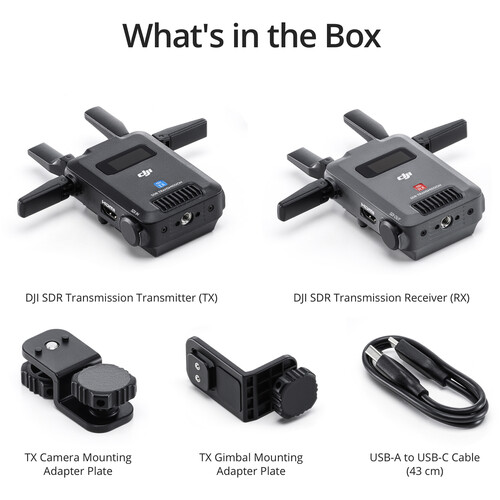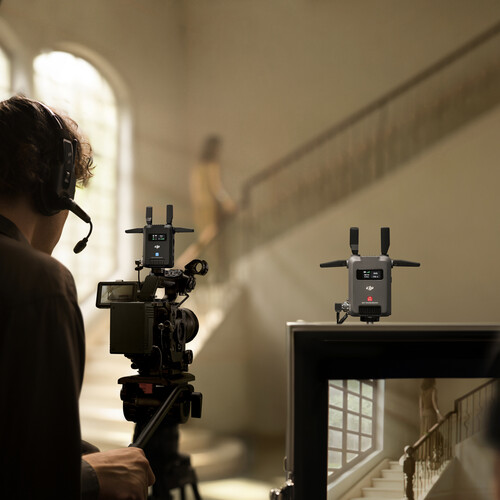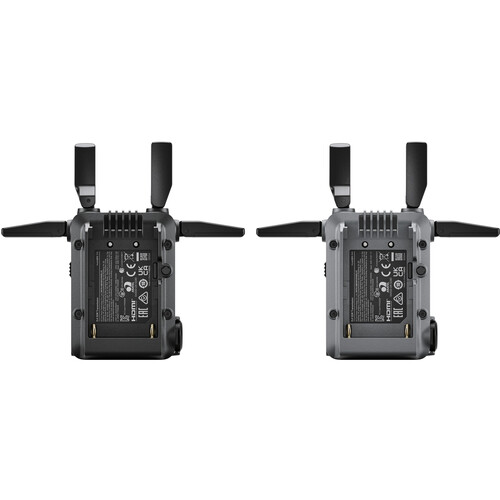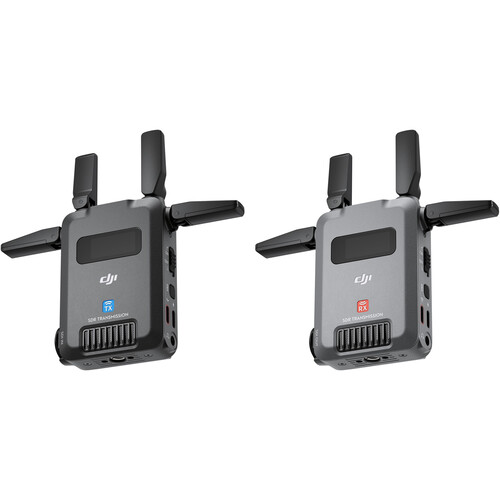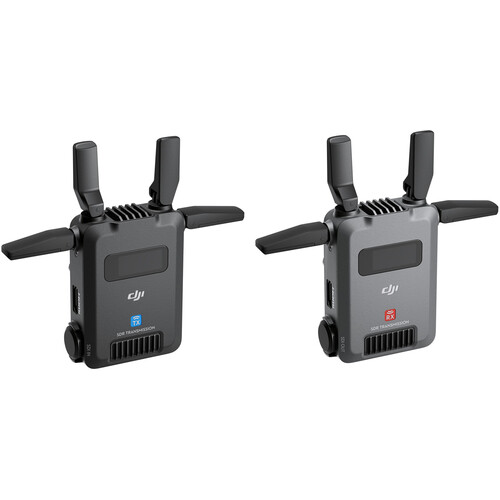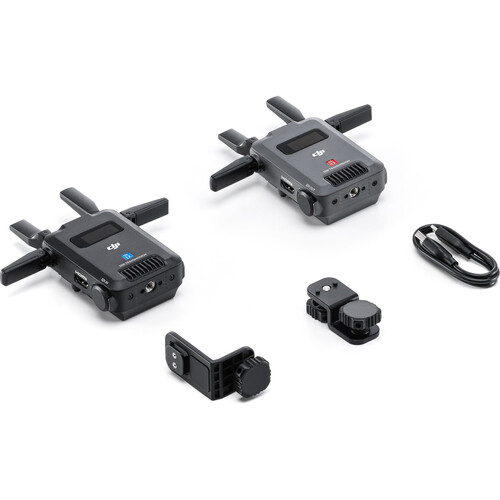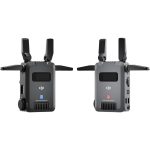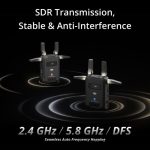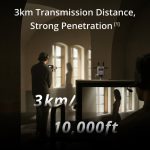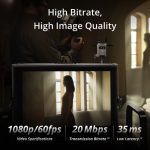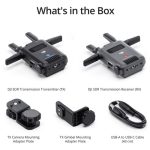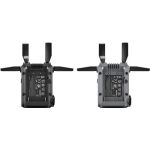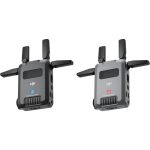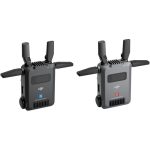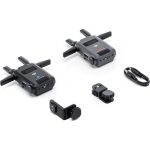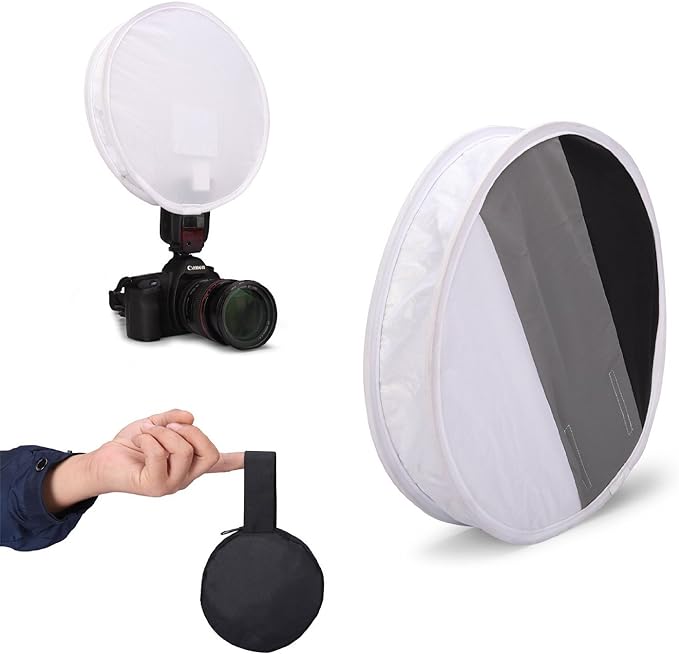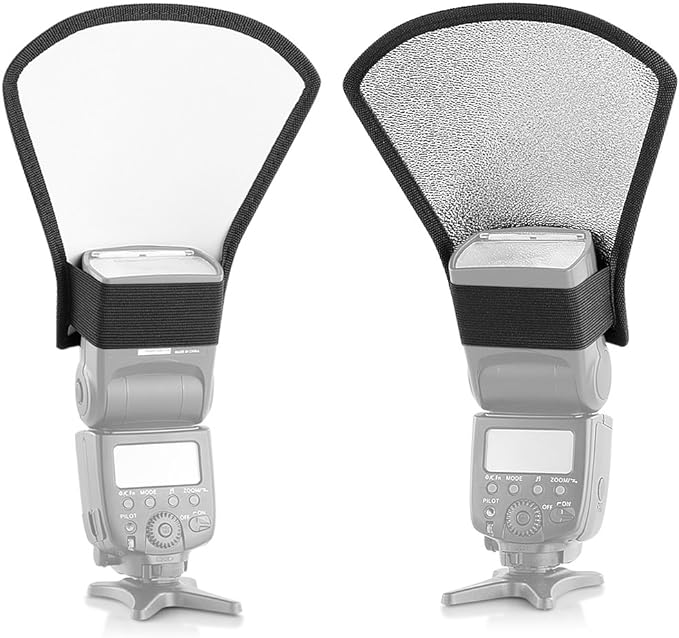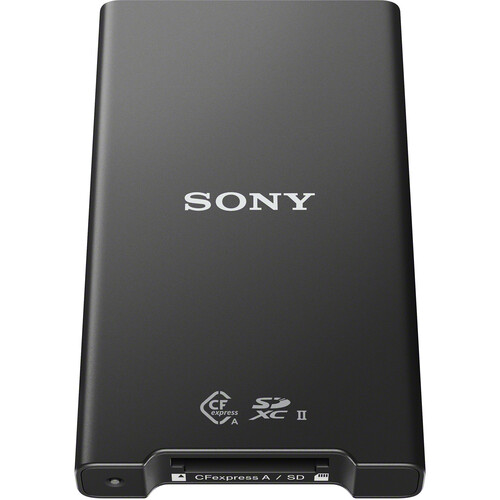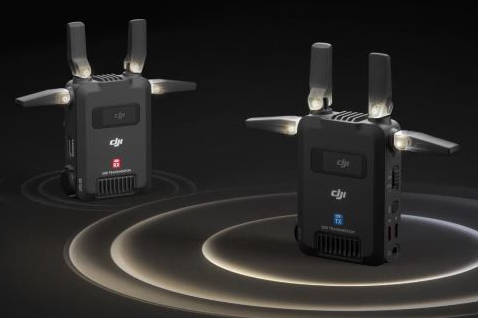
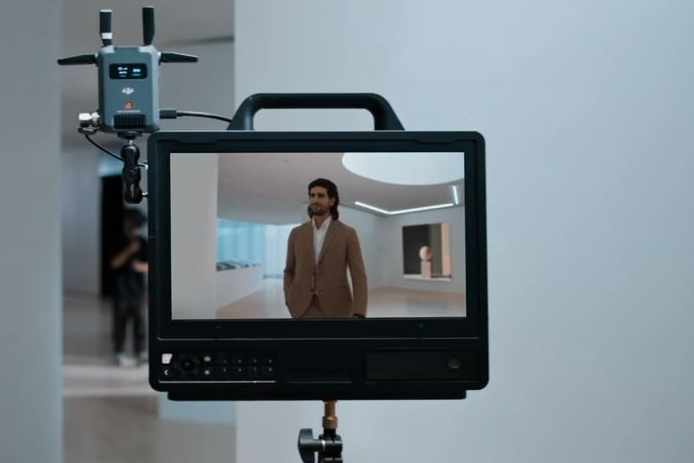
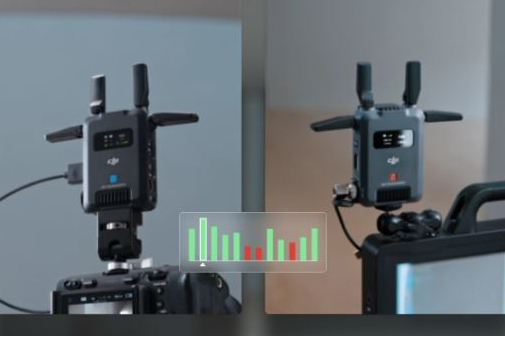
SDR technology supports seamless auto-frequency hopping across the 2.4 GHz, 5.8 GHz, and DFS frequency bands. In case of interference, it can automatically switch to the cleanest channel when operating in complex environments with many obstacles.
When the SDR Transmission system is connected to the app in SDR Control mode or Wi-Fi mode, users can also manually switch channels within the app and monitor channel quality simultaneously.
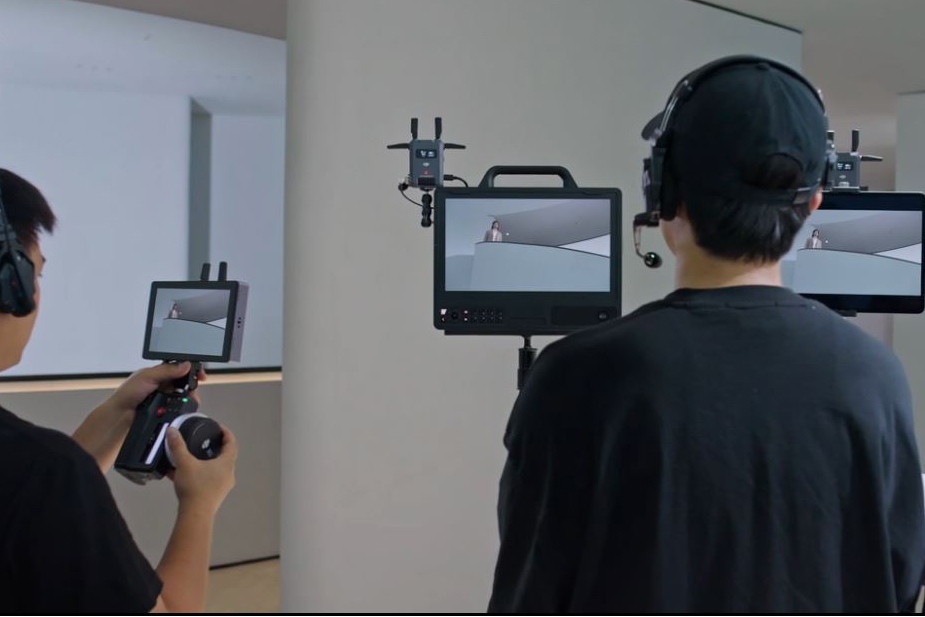
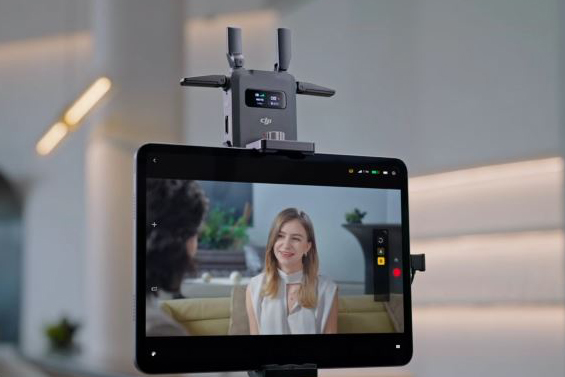
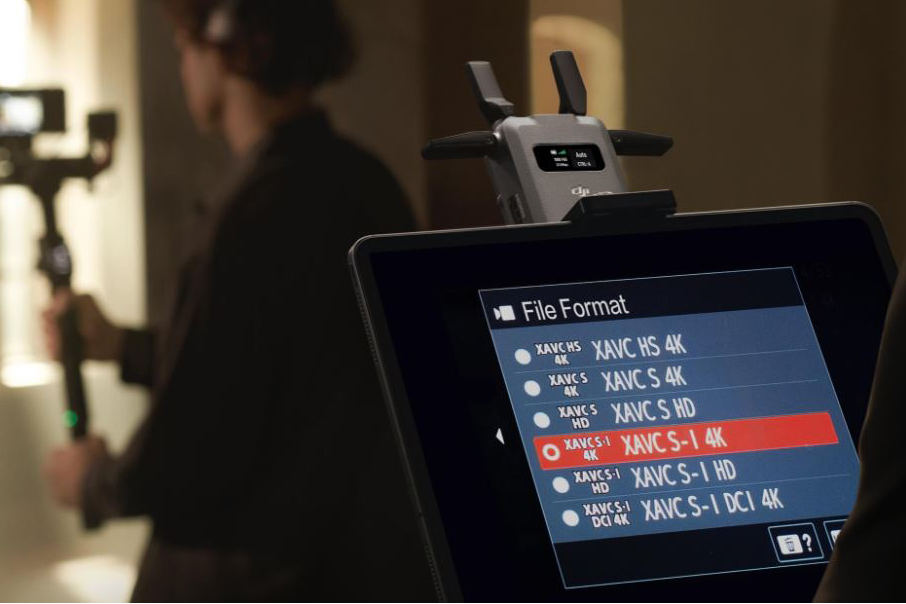
The SDR Transmission system supports PTP control over cameras, displaying and adjusting aperture, shutter, ISO, and even triggering the camera’s photo-taking and video-recording functions through the app. It also supports CEC control for Sony cameras using Mirror Control mode. See the DJI SDR Transmission Camera Compatibility list for compatible cameras.
When connected to a gimbal, it also supports Force Mobile, virtual joystick, and gimbal recentering functions when connected to the gimbal via the app.
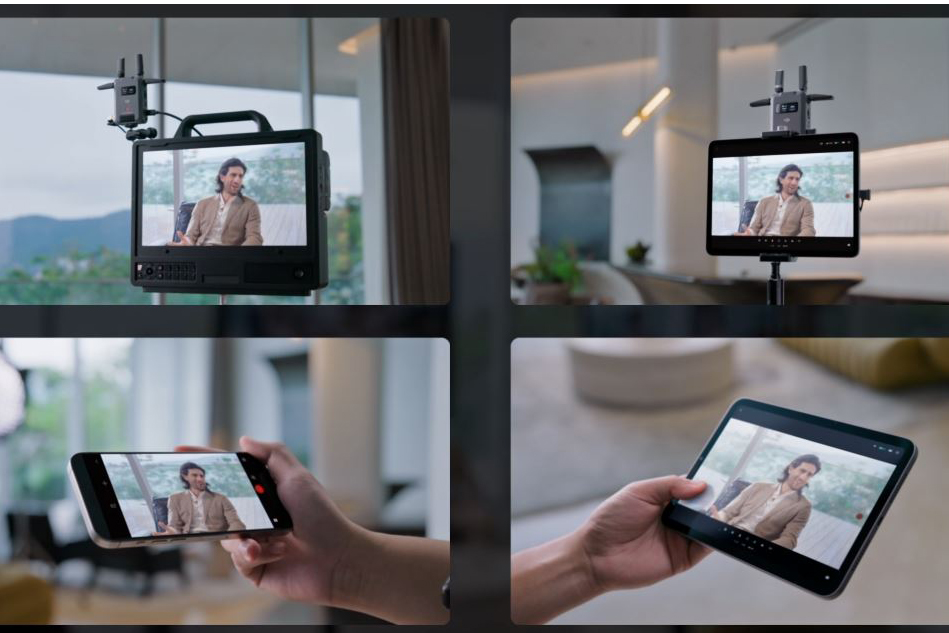
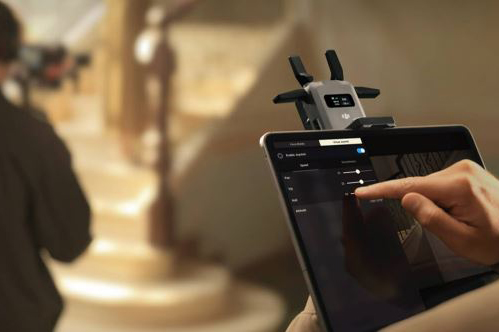
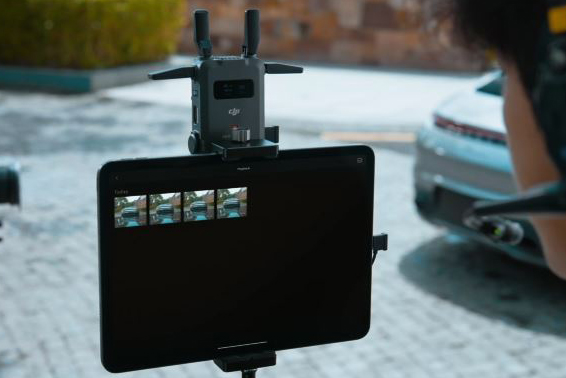
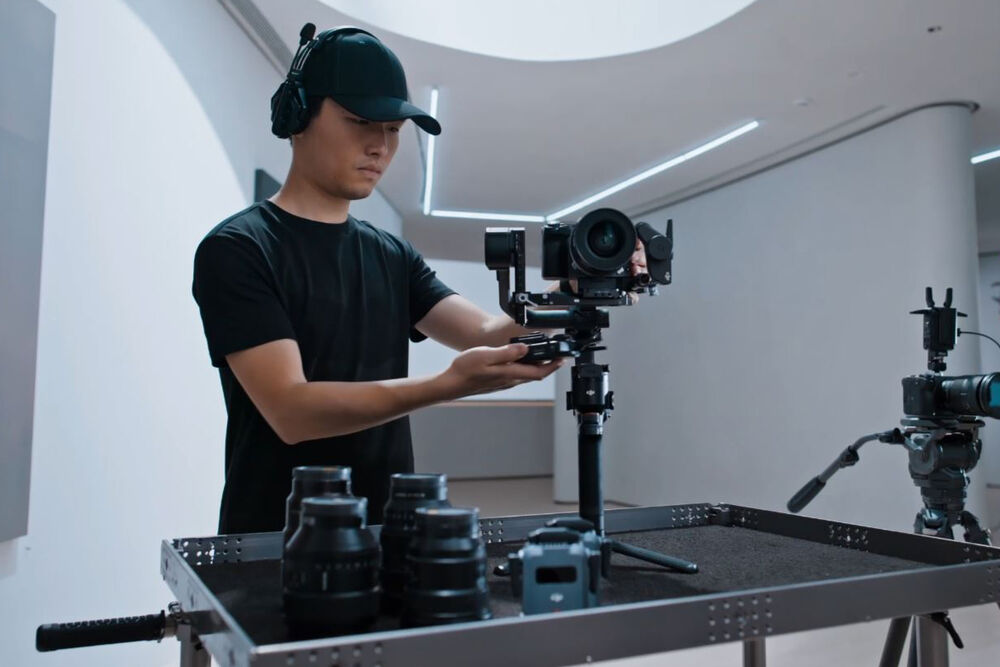
The transmitter can be powered directly via a USB-C cable using a USB PD fast charger, a standard USB power supply, or via an L-series battery using its built-in port on the back.
The transmitter also includes a gimbal adapter mount, and when used with the DJI RS 4 Pro, RS 4, or RS 3 Pro, the transmitter can be mounted on the gimbal and powered directly by it, eliminating the need for a separate battery.
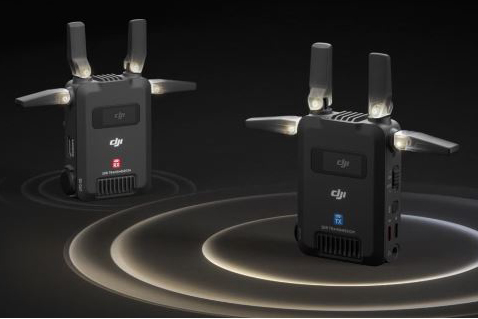
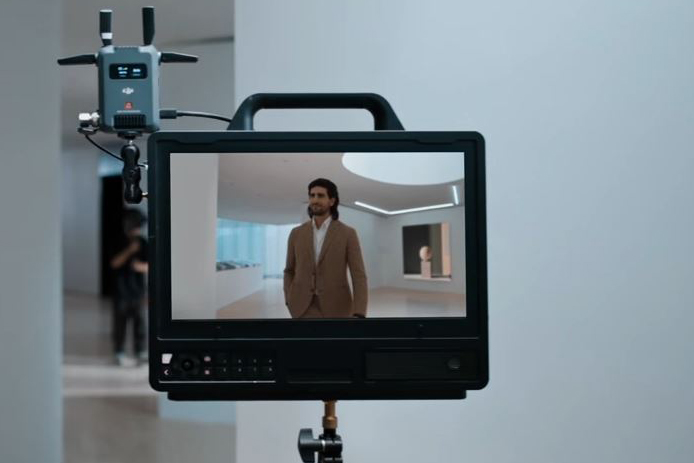
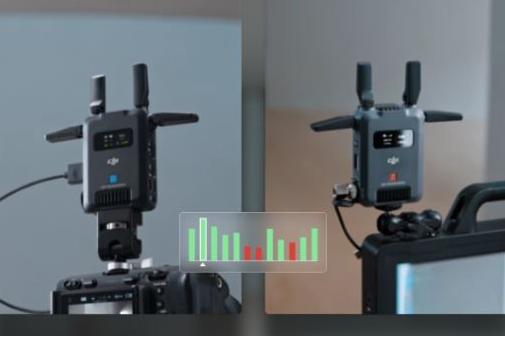
SDR technology supports seamless auto-frequency hopping across the 2.4 GHz, 5.8 GHz, and DFS frequency bands. In case of interference, it can automatically switch to the cleanest channel when operating in complex environments with many obstacles.
When the SDR Transmission system is connected to the app in SDR Control mode or Wi-Fi mode, users can also manually switch channels within the app and monitor channel quality simultaneously.
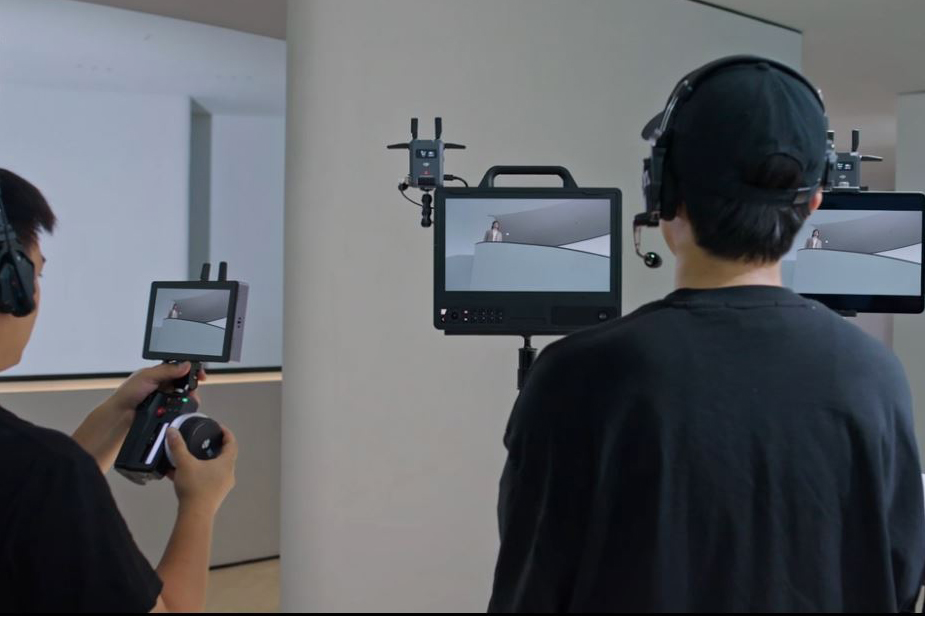
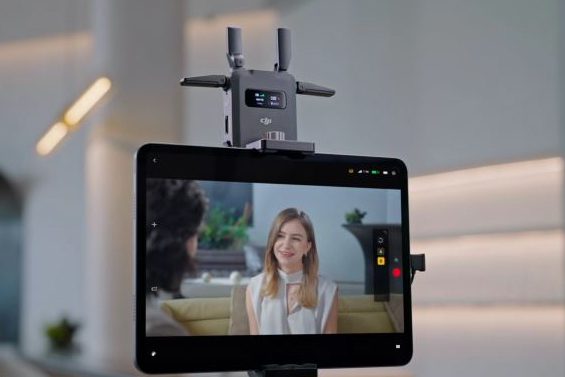
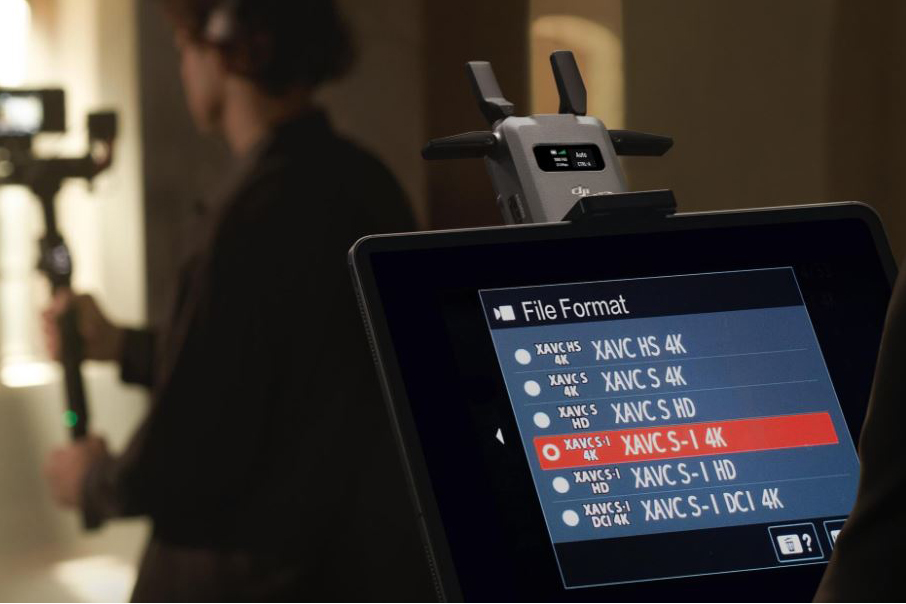
The SDR Transmission system supports PTP control over cameras, displaying and adjusting aperture, shutter, ISO, and even triggering the camera’s photo-taking and video-recording functions through the app. It also supports CEC control for Sony cameras using Mirror Control mode. See the DJI SDR Transmission Camera Compatibility list for compatible cameras.
When connected to a gimbal, it also supports Force Mobile, virtual joystick, and gimbal recentering functions when connected to the gimbal via the app.
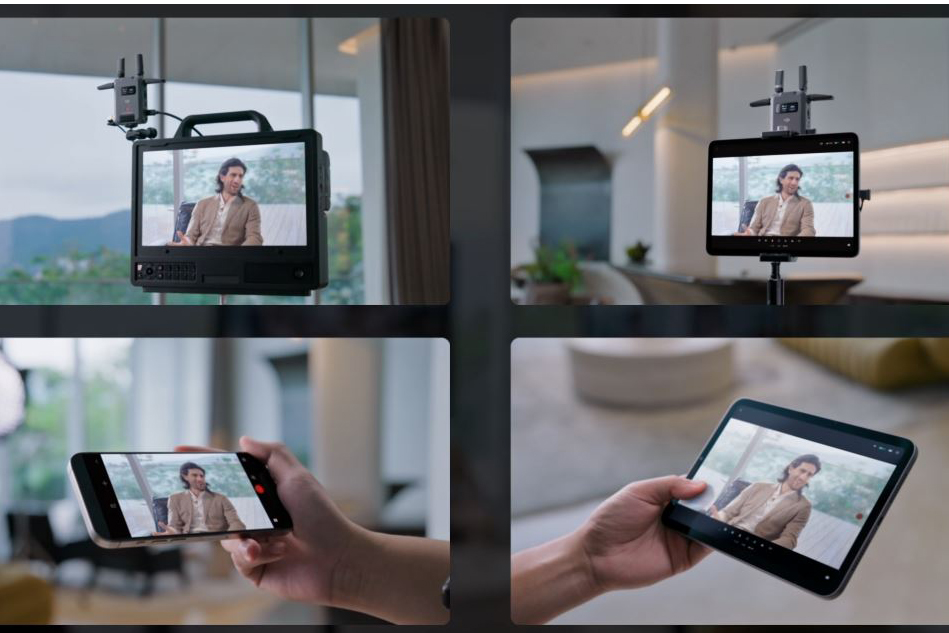
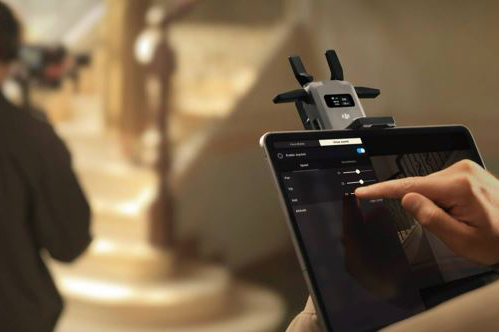
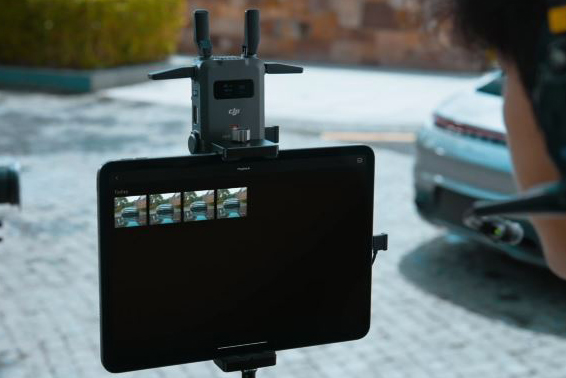
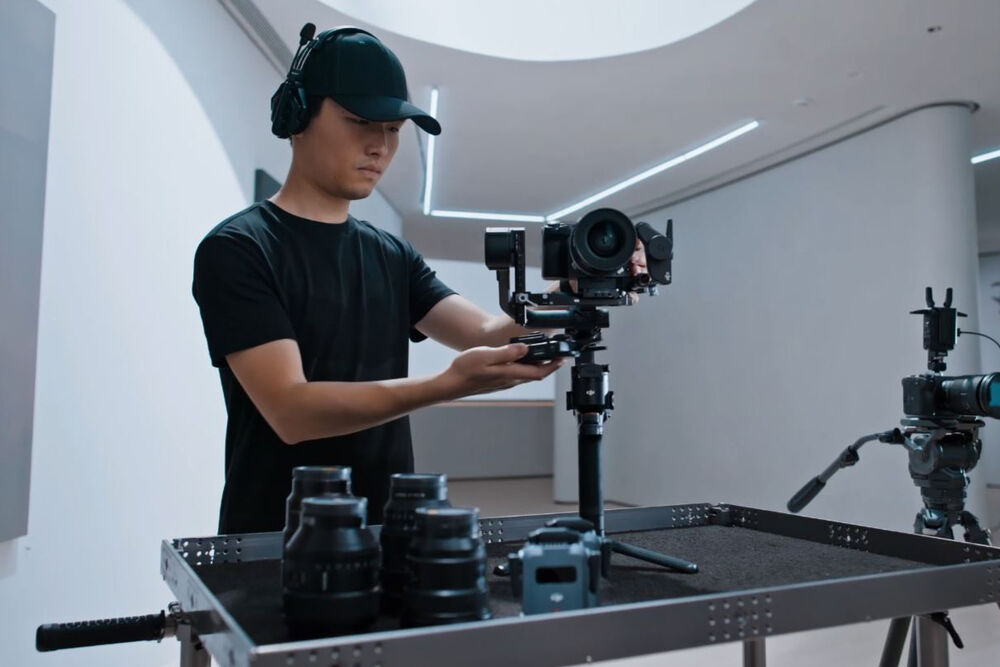
The receiver can be powered directly via a USB-C cable using a USB PD fast charger, a standard USB power supply, or via an L-series battery using its built-in port on the back.
When used with the DJI RS 4 Pro, RS 4, or RS 3 Pro, the transmitter or receiver can be mounted on the gimbal and powered directly by it, eliminating the need for a separate battery.

